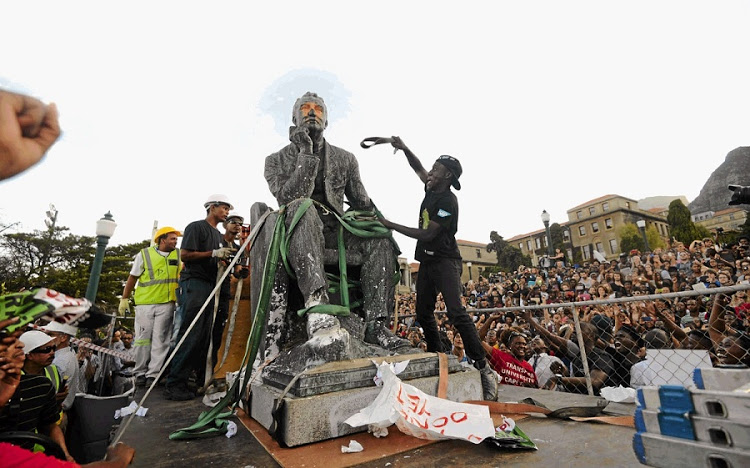This talk attempts to make historical sense of arguably the two most controversial incidents of our time around the stake of visual images and public monuments in issues of race and representation: the #RhodesMustFall movement and the removal of the statue of Cecil Rhodes at the University of Cape Town; and the contested appropriation of a photograph of the lynched black boy Emmett Till by a white painter, Dana Schutz, exhibited at the Whitney Biennial in New York.
Iconoclasm and White Supremacy: Decolonising Visual Culture and Public Memory in South Africa and the US
Afonso Dias Ramos (University College London/ Art Histories Fellow 2018/19)
Forum Transregionale Studien, Wallotstr. 14, 14193 Berlin

Aiming to throw these events into productive dialogue, the talk reconsiders these controversies from a comparative and transnational angle, in the light of current campaigns to decolonize visual culture. Specifically, it addresses contemporary debates about the politics of representing colonial history by looking at the unresolved tension and vexed articulation between the monuments that whitewash the past outside the museum, and the pictures that explicitly foreground its disturbing violence inside the museum.
Afonso Dias Ramos holds an MA and received his PhD in the History of Art from University College London with a thesis focusing on the relationship between political violence and photography in contemporary art, exploring and confronting the recent artistic legacy of the liberation and civil wars in Angola (1961–2002) in countries such as Angola, Cuba, Portugal, South Africa, and the US. He previously studied History of Art at Universidade Nova de Lisboa and Université Paris-Sorbonne (Paris IV). Recent publications include the articles Rarely penetrated by camera or film – NBC’s Angola: Journey to War (1961) (2017), Photography and Propaganda in the Late Portuguese Empire: Volkmar Wentzel’s Assignments for National Geographic Magazine (2017), Kongo Reframed (2017), and How to Disappear Completely – The Struggle for Angola (2017).

